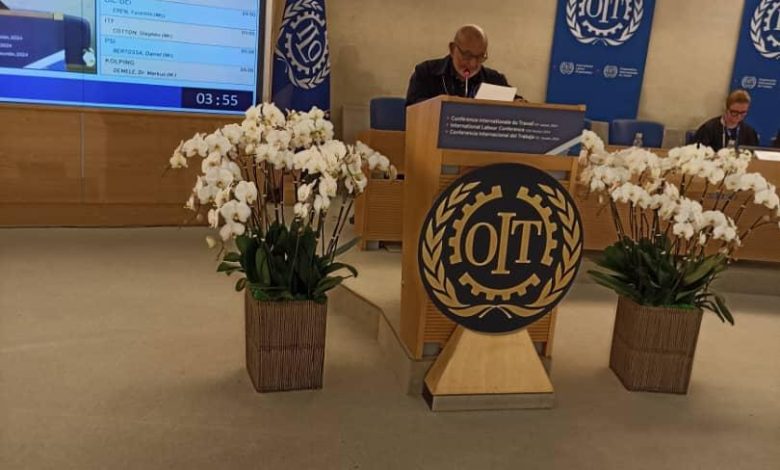Demands to assess the damage to investment

Sudan Events – Nahid Oshi
The representative of the Sudanese Businessmen Union, Abu Abdullah Al-Bukhari, called for the formation of a specialized committee to assess the damage to all areas of investment as a result of the war launched by the rebel Rapid Support RSF Militia, pointing to the challenges facing business owners after the outbreak of the war, which led to the destruction of infrastructure and all sectors of work (industrial, agricultural, commercial, transportation, small industries, craftsmen) by more than 80%, and he said that the destruction is systematic, while all inputs were stolen and production lines were destroyed, which resulted in the displacement of more than 6 million workers, most of whom became displaced and without work or wages.
During his participation in the 112th session of the General Assembly of the International Labor Organization, he stressed Sudan’s commitment to all international labor standards, and that the tripartite committee (government, workers, employers) is active. He said, “Before the outbreak of the war, the tripartite committee was engaged in monthly meetings to discuss labor challenges and find appropriate solutions.
The employers’ group also defends the rights and interests of companies and businessmen.
Despite the challenges, the private sector continued to contribute to the economy and provide employment opportunities.
The war affected the State, workers and employers. He considered workers the basic element of production, and said, “Employers were committed to providing their full rights, but the economic losses of the war led to failure to fulfill those obligations.
Companies were disrupted, infrastructure was damaged, and livelihoods were destroyed.” He called on the International Labor Organization to provide technical and logistical assistance, in addition to the need to benefit from the experiences of countries that suffered from wars and emerged from their crises and returned to production. He said that to rebuild, we need the organization’s cooperation through economic recovery, as businesses need financial support, access to credit, and investment incentives. He urged international partners and donors to cooperate to rebuild a strong and sustainable economy. Abu Abdullah pointed to the need to help raise skills. The workforce, matching skills with market requirements and enhancing vocational training. He added, “Employers and the government must engage in constructive dialogue and provide support to strengthen social partnerships, encourage fair labor practices and ensure decent working conditions.” He pointed out that the war has exacerbated health challenges, and said, “We seek to reach out to help improve health, safety and standards,” calling on everyone to join hands with Sudan for a better future.



